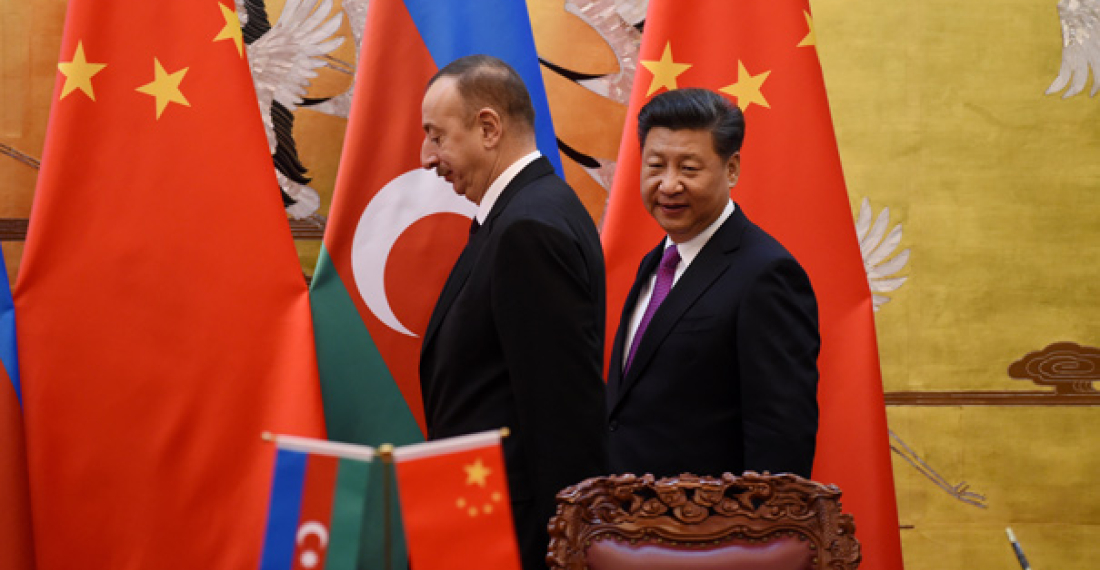China is a relatively new player in the South Caucasus but has growing interests, particularly in the economic domain. While Beijing established diplomatic ties with Armenia, Azerbaijan, and Georgia in the early 1990s, it largely stayed out of the region’s geopolitics. Armenia acquired Chinese-made WM-80 multiple-launch systems in 1999, but they had little impact on the military balance with Azerbaijan.
Chinese economic ties with the South Caucasus began to grow in the early 2000s, driven by the rapid expansion of its economy. Interest in the region deepened after President Xi Jinping announced the Belt and Road Initiative in 2013, with the South Caucasus envisioned as a potential land route connecting China to Europe.
According to World Bank data, between 2005 and 2018 Chinese trade turnover with Armenia, Azerbaijan, and Georgia surged by approximately 2,070%, 380%, and 1,885%, respectively. Investments have since increased significantly, though unevenly, across the region.
Since the early 2000s, China has significantly increased its investments in the South Caucasus, but these have yet to be distributed equally. Armenia has attracted the lowest level of Chinese investment among the three nations. Still, bilateral trade continues to grow: in the first nine months of 2024, trade between Armenia and China reached $2.08 billion—a 34.7% increase from 2023. The launch of direct flights between the two countries in September 2024 further underscores their expanding economic ties.
In Azerbaijan, Chinese investment has concentrated on natural resources, infrastructure, and transit. By 2019, Chinese companies had invested more than $800 million in Azerbaijan’s economy, with Azerbaijani companies investing $1.7 billion in China, according to Shahin Mustafayev, Azerbaijan’s then Minister of Economics.
China has made significant investments in Georgia, particularly in ground transportation. In 2017, the Beijing-headquartered Asian Infrastructure Investment Bank provided $114 million to build a bypass around Batumi, facilitating international transit at a strategic location near the Black Sea. The Hualing Group, a prominent Chinese investor, has also developed large-scale projects, including residential areas near the Tbilisi Sea, the Tbilisi Sea Plaza shopping mall, and a free industrial zone in Kutaisi. A 2017 free trade agreement between Georgia and China has further boosted trade and investment.
China’s engagement with the South Caucasus has deepened in the last two years. Georgia signed a statement on strategic partnership with China in July 2023 focused on four domains—political, economic, people to people and culture, and international. The two sides reaffirmed their respect for all countries’ sovereignty, independence, and territorial integrity, and Georgia firmly adhered to the One China principle. Both sides expressed readiness to facilitate mutual investment and trade and promote cooperation in transportation, communications, infrastructure modernisation, development and strengthening of the Trans-Caspian International Transport Corridor (“Middle Corridor”), digital technologies, manufacturing, upgrading and expansion of railway networks, agriculture and food safety, and water resources. Georgia awarded the construction of a new deep sea port in Anaklia to a Chinese consortium in 2024.
Azerbaijan followed suit, signing a joint strategic partnership statement with China in July 2024. In the statement, the sides affirmed their commitment to mutual respect for territorial integrity and sovereignty; Azerbaijan firmly supported the One China principle, recognised the existence of only one China in the world, that Taiwan was an inalienable part of Chinese territory, and firmly opposed “Taiwan independence” in any form. Both sides agreed to promote projects in transport and communications, green energy, processing and manufacturing, infrastructure, the digital economy, and agriculture. At the same time, China expressed its readiness to actively participate in constructing and operating the Middle Corridor.
China’s increased interest in Central Asian, trans-Caspian, and South Caucasus routes is not just about economic efficiency—shortening cargo transportation time. At the heart of China’s interest in the South Caucasus is geography. The region offers a strategic link between China and Europe, mainly through the Middle Corridor. China formally joined the Middle Corridor in 2024, and the China Railway Container Transport Corporation contributed to its development. This alignment is part of a broader strategy to diversify trade routes and mitigate risks from potential instability elsewhere. The Middle Corridor—extending from China through Kazakhstan, the Caspian Sea, the South Caucasus, and Türkiye—provides Beijing with a critical alternative to traditional sea routes, and the Northern Corridor through Russia, which faces geopolitical and logistical challenges.
China’s growing involvement in the South Caucasus remains primarily driven by economic and infrastructure projects with less emphasis on regional geopolitics, though recently we saw the increase in military cooperation between China and Azerbaijan as the Azerbaijani minister of defense visited China in October 2023. The Main Directorate of International Military Cooperation of the People’s Liberation Army of China delegation visited Azerbaijan in June 2024. While China lags behind Russia, Türkiye, Iran, the European Union, and the United States in shaping the geopolitics of the South Caucasus, this may change as the global order shifts from a unipolar to a multipolar structure.
Future Prospects
All three countries have been working to advance their ties with China for economic gains and to give themselves more leverage in their relations with global and regional players. As China’s economic growth continues, it will increase its involvement in the South Caucasus, and regional states should be ready to exploit the opportunities.
Source: Benyamin Poghosyan is a Senior Fellow on foreign policy at APRI Armenia and the founder and Chairman of the Centre for Political and Economic Strategic Studies in Yerevan.
The views expressed in opinion pieces and commentaries do not necessarily reflect the position of commonspace.eu or its partners







